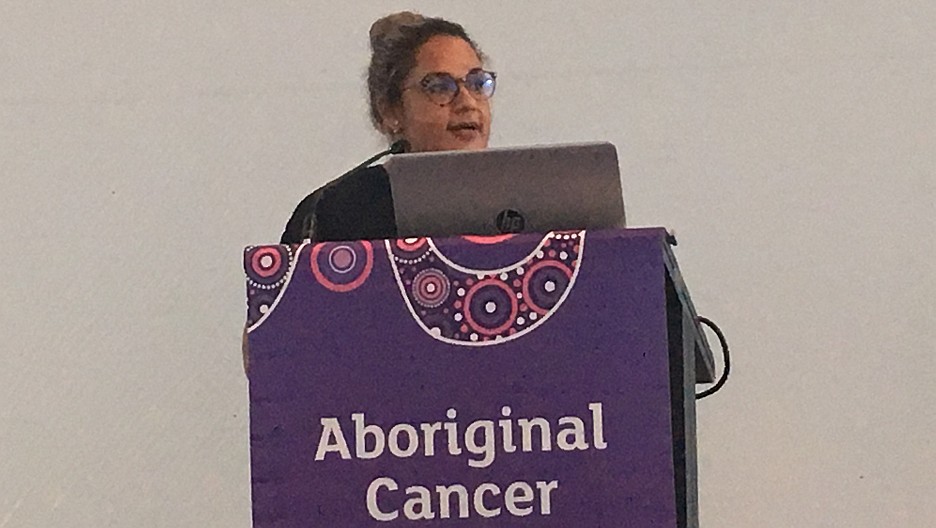In the indigenous community life expectancy remains at 10 years lower than for non-indigenous Australians.
Dr Lisa Whop from the Menzies School of Health Research spoke today about improving the health of Aboriginal and Torres Strait Islander people at the Aboriginal Cancer Network Forum.
She pointed out the increasing gap in cancer mortality between indigenous and non-indigenous Australians, in which a decreasing trend in non-indigenous Australians is starkly contrasted to an increasing trend for indigenous Australians.
“This is a true health care system failure.”
Lisa also spoke about her recent research involving the observations of clinicians in Queensland in treating indigenous cancer patients.
“We’re seeing higher incidence of cancer with poorer prognosis, lower and less cancer therapy with less treatment and more delayed treatment, as well as higher odds of receiving cancer care inconsistent with clinical guidelines.”
She has a particular interest in cervical cancer screening for HPV, where the statistics clearly indicate benefits and survivability for screened women. But not everyone seeks screening.
Lisa said that one of the reasons given by indigenous women for not seeking screening might be ‘I see my aboriginal health service for everything, I don’t want to go there for my HPV test’. But the barriers need to be better understood for effective interventions to be planned.
All of this has led to the planned launch of Screening Matters, a program to ask women across NSW, QLD and NT ‘what is it that will change your mind about screening?’
Lisa Whop is currently supported by a NHMRC Early Career Fellowship. The Aboriginal Cancer Network Forum is hosted by the Cancer Institute of NSW, 20-21st of March in Sydney.


